Understanding a God Who Is For Us: John Maxwell & Nate Pyle
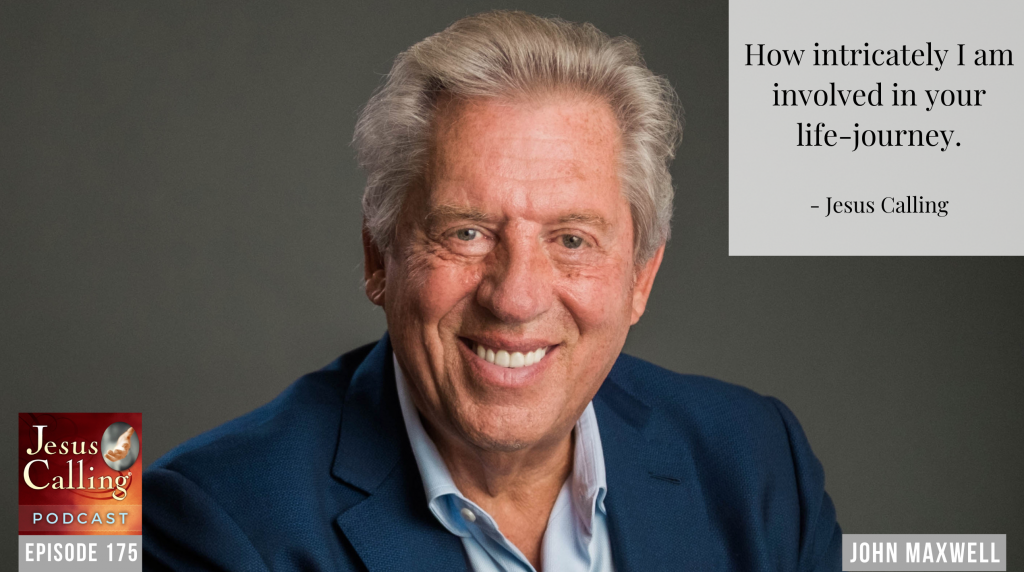
John Maxwell: Everybody wants to know God. They’re created to know God. The reason they don’t know God is they have a wrong picture of Him. You see, if I had a wrong picture of God, I wouldn’t want to know Him either. So what I’ve been trying to do for the last twenty-five years is to help people get a right picture.
Understanding a God Who Is For Us: John Maxwell & Nate Pyle – Episode #175
Narrator: Welcome to the Jesus Calling Podcast. Today we talk with two men who show us that God is always with us and has our best interests at heart: leadership coach John Maxwell, and pastor and author Nate Pyle.
First up, for more than fifty years, John Maxwell has honed his leadership skills—first as a pastor, then as a mentor and speaker to business leaders around the globe. Today he tells us about his unlikely shift from pastor to a business coach, how he’s learned far more from his failures than from his success, and why the Jesus Calling app is one of his go-to resources.

John Maxwell: Hi, my name’s John Maxwell, and for twenty-five years, I was a pastor and I loved it and I kind of thought I would do that and be that all my life.
I was writing books while I was pastoring, and my publisher one day came to me and said, “You realize two-thirds of your books are being read by the business community?” And I was totally shocked by that. Truthfully, I was really writing for pastors, to help them learn how to lead better, and that was my audience, or at least I thought it was my audience. What I discovered through the publisher was that the business community was taking my principles and they were applying it into their businesses. And it makes sense to me now, because everything I know about leadership is from the Bible, even in the corporate world where I am now.
“Everything I know about leadership is from the Bible.” – John Maxwell
Immediately, I felt called to go into that world, because they didn’t have a lot of salt and light. I thought, I’m going to leave the choir. I’m gonna leave the church as we know it. And I’m going to go and do ministry to people who [don’t even have] the church on their radar screen.
I started off as a pastor, for twenty-five years, and then for the last twenty-five years now, I’ve been in the business world being salt and light.
The Ultimate Leadership Book
I think God’s Word is the ultimate leadership book. It really is. If you want to know how to lead well, you just read the Word and there are leadership stories and principles that you can apply to your life.
“I think God’s Word is the ultimate leadership book.” – John Maxwell

It’s a pretty big leadershift to go from a trained theologue, as a pastor in church for twenty-five years, and shifting over to the business world. I didn’t have a business degree, [but I was] trying to connect with them. I knew I was called, but I didn’t know how effective I would be. And for the first three years, it was all uphill, because I have to connect with them in their world. The common strand was leadership principles that I had learned out of the Bible, but this was a mega shift.
I’ll never forget, in my first year when I made that shift, being on Kiawah Island and speaking to the largest lumber broker company in the world. At the end of the day, they raised their hand and asked me, “Your leadership stuff, it’s different. Where did you get it?”
And I told them, “You don’t want to know. “
And, of course, you tell somebody that they don’t want to know, and it just makes them want to know. So I said, “No, no, you don’t want to know.”
[Then], other hands [went] back up and they said, “No, no. We really do want to know.”
And I said, “If I tell you, you’re going to be disappointed. So I think we’re better off, just not knowing.”
Well, they couldn’t handle this. “No, we want to know.”
So I said, “Everything I taught you today, I learned from the Bible.”
And you should have seen it, there was an audible, Ahhh. I said, “I told you. I told you you were going to be disappointed. That wasn’t what you thought I would say.” I said, “Now I know you have a cocktail hour tonight, 7:00. I’ll be there, I’ll be over in the corner. And if you have any questions about God or about life and you just haven’t been able to put it together, I’ll just hang there. Just come over and talk to me and I’ll do my best to maybe help you or answer questions.”
I went down there wondering if anybody would even come say hi to me after I told where I got all my leadership material. As soon as I got there, there was a group gathered, and I got over in the corner, and the line for the next hour never stopped. The people were asking me questions about God, and I can tell you, I walked out of that cocktail hour so convinced of my calling.
Discovering the True Picture of God

I do a teaching on the four pictures of God. The first three are the wrong pictures of God.
The first picture is a wall, a big, foreboding wall. We’re on the outside, and God’s on the inside. A lot of people, when they think of God, they go, “Oh yeah, there’s a God.” But they’d never make what they would call a personal relationship or connection with Him, because they’ve got this wall, this barrier. And then I help them say, “If I have that picture of God, it’s a wrong picture. It really is.” The reason I know that is because at the very beginning, you go back to God creating man, Adam and Eve. When they sinned, they hid from God. It was God who came looking for them. It wasn’t man saying, “Oh, my gosh, I blew it. I’ve got to get to God and tell Him I’m sorry and I’ve got to kind of make amends here.” No, no, no. They hid. We all hide. I hide. You hide. Sin causes us to hide. God’ll jump the wall. That’s what Jesus did. I mean, He jumped the wall, came here, came out of heaven, put on the clothes, the flesh, the whole deal. He jumped the wall to get to you.
The second picture that people have, [another] wrong picture of God, is a stairway to heaven and [they’re] going to climb it. It’s the stairway of good works, and [they think], I’m just going to be a good person, a good neighbor, a good family person. And they start climbing, and [they forget] the fact that it’s a gift and that there’s nothing that we can do to deserve or earn it. We just get prideful and look at each other and compare ourselves and say, “I think I’m a little closer than you because I’m a little bit better of a person,” and it just doesn’t work.
In the third picture, I tell them to picture a—this is terrible—a garbage dump. And you know, there’s nothing enduring about a garbage dump. I mean, nobody’s ever said, “Let’s go take a walk by the garbage dump today.” Nobody ever does this. No, no, no, no. It’s a garbage dump and we don’t want to see the garbage. We don’t smell the garbage. We do want to get around the garbage. We’ve got a whole bunch of garbage in our lives. And what they say is, “God is not interested in me. I mean, if you knew what I had done . . .” So I help them, I say, “Again, the wrong picture.” In fact, what’s really interesting is that God’s incredibly interested in all your junk.
“God’s incredibly interested in all your junk.” – John Maxwell
“Let me explain something to you. I’m a doctor. Basically, the people I see are sick people.” And he said, “You’ve gotta understand, I’m on a mission and my mission is to get around people that have garbage in their lives.”
The last picture is the door where Jesus is knocking, and basically He’s saying, “I want a relationship with you.” By the way, he initiates the relationship. I don’t. If I’m a thousand steps from God, He takes nine hundred and ninety-nine steps to my door. He says, “Maxwell, can you just take one step and open the door? I want to come in.” He initiated the whole relationship. I talked to Him about how God really wants a relationship with them, more than they want a relationship with Him, and how that relationship has the ability to change your life.
“If I’m 1000 steps from God, He takes 999 steps to my door.” – John Maxwell
Sharing Inspiration on the Go with the Jesus Calling App

One of the things I believe is that in your spiritual growth, all’s well that begins well. I think the first part of the day needs to have some time [spent] in your faith, and in your relationship with God. Every day, I can get a message from the Jesus Calling phone app. I not only get it, but twenty-five percent of the time, I’m passing it on someone else, and I’m saying, “Oh, I just read this.” And what’s beautiful about it is it’s not long. You could do it in a couple of minutes. It’s very simple. It’s extremely connecting and relational, and it’s very uplifting.
Whenever I share my faith with somebody, if they become a Christian, the first thing I tell them is to get the Jesus Calling app. I say, “The first thing you want to do is start going to Jesus Calling every day.”
There’s this wonderful business lady that I led to the Lord recently. And I said, “Now, get the Jesus Calling app.” I mean, I have done this thousands of times. “Get Jesus Calling, get it, and every day start your day with that.” I [asked her], “Well, how’s it going?”
And she said, “Well, it’s going good. I read Jesus Calling this morning.”
And I said, “Read it every day. Make it a habit.” if you want to really develop a habit, you’ve got to have something that’s easy to get to. You’ve got to be going to it, not having to get to it. That app—I mean, the book is good, I’ve got the book also—I’m on the run. I’m not home, I’m on it. I’m on a trip, boom. Got it.
I don’t know of anything that has been an encouragement to Christians more than Jesus Calling. For me, it’s like number one. I just find it feeds me daily, and I like to pass it on daily.
Finding Your Own Leadership Qualities
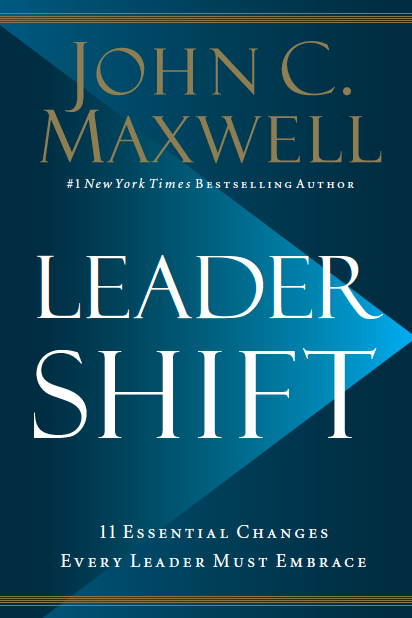
The book Leadershift is all about shifts that we make in our lives that will allow us to, basically, connect better with people so that we can have a stronger relationship with them and add value to them and to help them a lot.
When people ask me how to apply leadershifts to their life, most people think, Well, if I’m not a leader, this wouldn’t be a book that would connect with me. What I teach is very simple. Leadership is influence. Nothing more, nothing less. So you don’t have to have a leadership position to be a leader. A mom influences her family. Would you like to be able to influence them more effectively? If so, then let me teach you some leadership influence principles that will help you do that.
Leadershift is all about being adaptable, finding out where the people are and meeting them on their common ground, and asking questions. In fact, I have a whole chapter on asking questions, and how I had to shift from directing, where I would tell people what to do, to connecting, where I would ask questions. The moment I ask questions, I start connecting with people, because now I’m valuing their opinion and I’m starting to influence and lead them from where they are, not from where I am. I’m not saying, “Come to where I am and let me influence you.” I say, “No, no. Let me find out where you are and see if I can help you there.” And then I bring them to where they want to go.
“The moment I ask questions, I start connecting with people, because now I’m valuing their opinion and I’m starting to influence and lead them from where they are, not from where I am.” – John Maxwell
Learning to “Fail Forward”
I’ve learned a lot more from my failures than I have from my successes. When I’m succeeding, It’s kind of like, “Let’s just celebrate,” and, “Aren’t we wonderful?” But when I’m failing, I’m saying, “Okay, there’s something’s wrong here. I’ve got to figure this out.”
What I teach people all the time is to fail forward. That as you fall, just go three feet. Fall forward and get back up, you’ve already gained three.
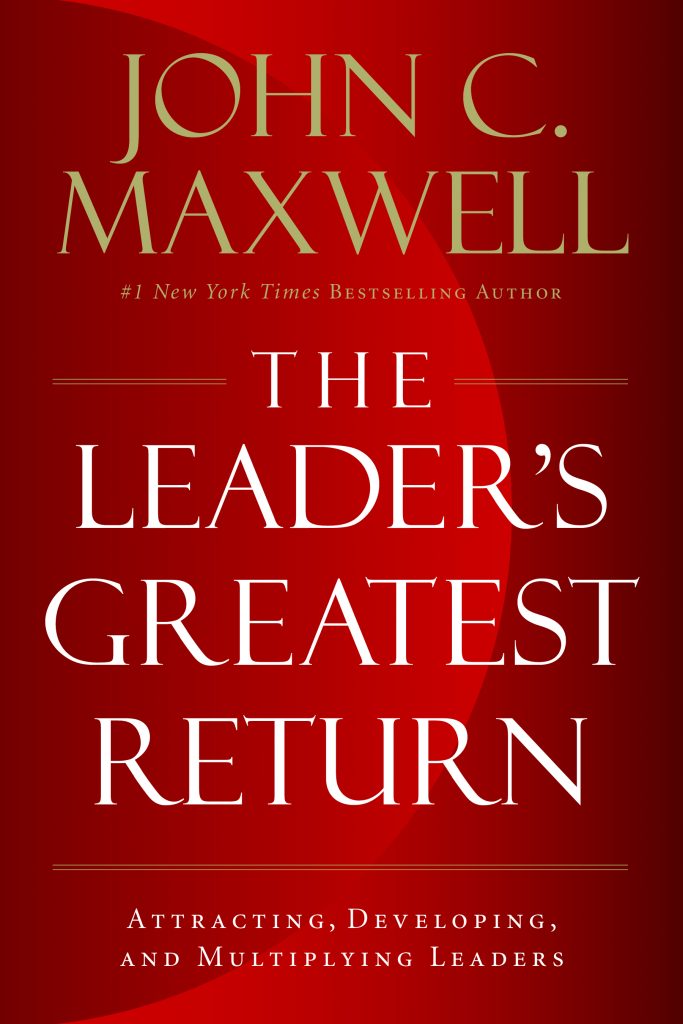
All my life, I’ve done a lot of of failing forward. I tell people all the time, “Don’t count your losses. Count your lessons.” So when people come to me, they’ll say, “Oh, you know, I had a terrible loss here.” Okay, I’ll listen to it, and when we’re done, the first question I have is, “Okay, what did you learn? What did you change? What did you improve about this?” Because if you learn from your lessons, if you learn these incredible lessons from failure, you don’t repeat that failure.
Narrator: You can find John’s book Leadershift or pre-order his next book called The Leader’s Greatest Return at your favorite book retailer today.
Stay tuned to hear from pastor and author Nate Pyle after a brief message about a way you can connect with other Jesus Calling readers each week in prayer.

Did you know that Sarah Young, the author of Jesus Calling, prays for her readers each day? In that spirit, we want to extend the Jesus Calling prayer community out to you in a more personal way. Each Tuesday morning, you can dial in to the Jesus Calling Weekly Prayer Call, where the team from Jesus Calling and special guests will minister to us during a ten-minute call to reflect on that day’s passage from Jesus Calling, read scripture references, and pray together for each other and our world. Prayer call times are 8:00 a.m. Eastern, 7:00 a.m. Central, 6:00 a.m. Mountain, and 5:00 a.m. Pacific and are for U.S. only.
For more information on the Jesus Calling Weekly Prayer Call, or to submit prayer requests, please visit www.jesuscalling.com/prayer-call.
Narrator: As Nate Pyle stood at the altar next to his bride, he never imagined the “For Worse” part of his wedding vows would play such a prominent role early in his young marriage. Nate and his wife Sarah became overwhelmed as they faced one complicated problem after another: infertility, an ectopic pregnancy, mental illness, and struggles with faith. Nate found himself thinking about the phrase people kept telling him: “God won’t give you more than you can handle,” which led him on a journey to wrestle with pain and suffering, and God’s role in our lives through it all, which he wrote about in his latest book, called More Than You Can Handle.
Nate Pyle: Hi, my name is Nate Pyle. I’m the pastor of Christ’s Community Church in Fishers, Indiana, which is in a suburb on the north side of Indianapolis, and I also have the privilege of authoring books. I’ve written a couple of books.
When the “For Worse” Happens More Than the “For Better”
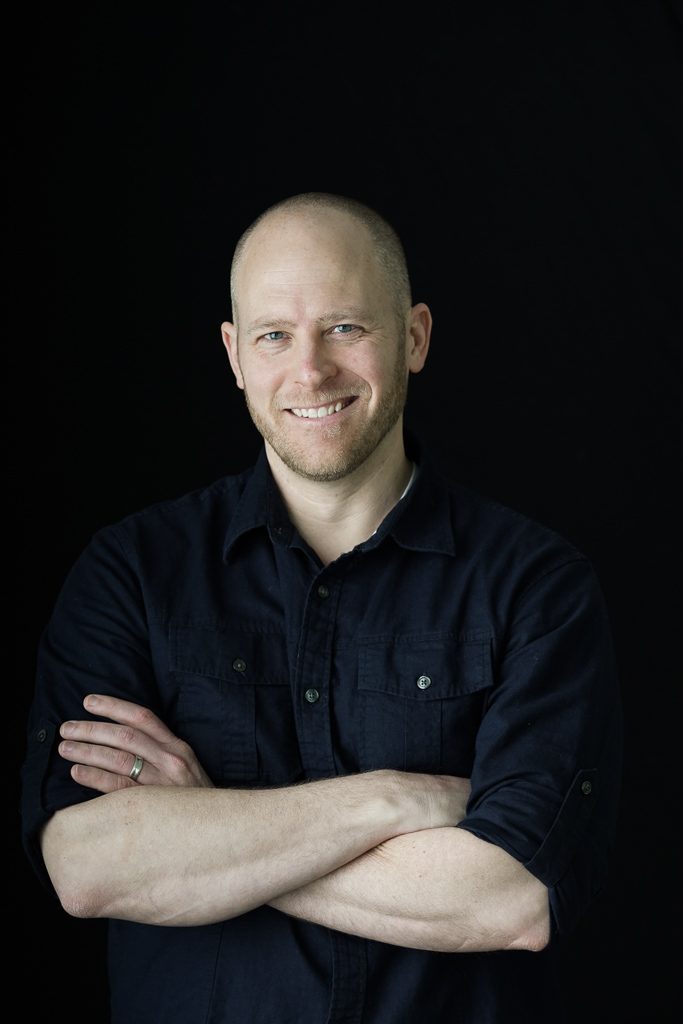
The phrase “God won’t give you more than you can handle” is connected to a verse in 1 Corinthians, in which Paul [says] that, “God won’t give you more than you can handle or more than you can stand up under,” but he’s directly talking about temptation in that passage. If we look in other places that Paul writes, [like] in 2 Corinthians, [where he says] that he is weak. And there’s one part where he talks about being weak to the point of despair. Paul hits that point, the “super apostle” of sorts, the person that we hold up as, “This is what it looks like, someone who can rejoice in suffering and can rejoice when life is going well. He rejoices in all things.” But there is a point. There are points in his life when Paul says, “Yeah, even I reached the point of despair. And in my weakness, Christ is made strong.”
This idea that God won’t give you more than you can handle, I think, is a way in which we try to shelter ourselves from the world, because the world is more than you can handle, whether you have the diagnosis of cancer, or you lose a spouse, or a child is going through an extreme illness. These are things that we can’t handle. We can’t handle the illness itself. We can’t handle the emotion that we’re feeling. But even on the positive side, there are some things in life that are so good that we can’t possibly wrap our minds around. So much of life is more than we can handle. We have to recognize that, particularly as it relates to the negative things in life, so that we can be weak.
“This idea that God won’t give you more than you can handle, I think, is a way in which we try to shelter ourselves from the world, because the world is more than you can handle.” – Nate Pyle
I think when we say to people, “God won’t give you more than you can handle,” we’re trying to strengthen them. And that’s a good motive. But ultimately, what we also need to recognize is that Christ is stronger than you. So in your weakness, allow yourself to be weak, feel the weakness, feel the inability to control the circumstances around you, so that you have nothing left but to rely on Jesus.
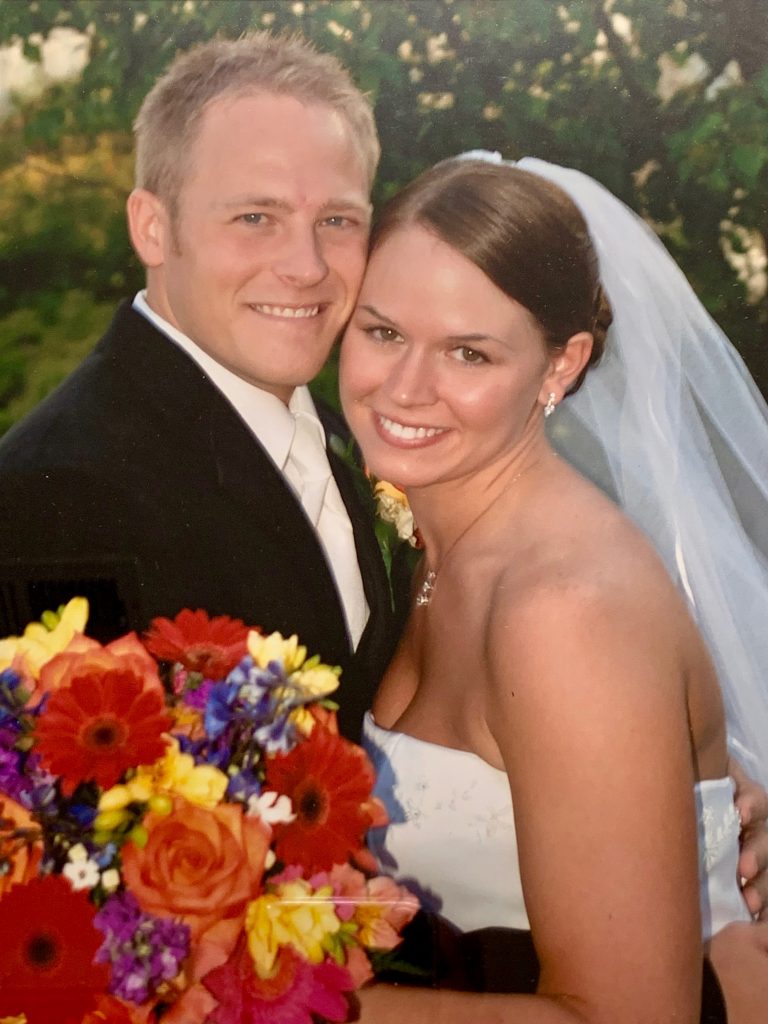
As our family went through infertility and ectopic pregnancies and my wife dealt with some mental illness and anxiety issues, these are all things that I couldn’t YouTube. I couldn’t YouTube “how to fix infertility.” And for certain personalities, myself included, this letting go of control, this giving up being able to fix it or being able to handle it and enter into our weakness as finite human beings with limited power in the world, well, that’s so hard, but it’s also the most human thing to do. It’s to recognize our humanity, and then allow God to show up in the midst of that, however God might show up, and begin to work out something that is better than what we could do with our own hands.
I think the difference, at least for me, between letting go and giving up, is when I give up, I really abandon the desire to see anything in this particular circumstance happen. So, with infertility in our case, for me to give up would mean, “We’ll, we’re just done trying and our family is the way that our family’s going to be, and I have to just resign myself to that.”
Letting go means that I still hold onto the desire. We still wanted to see our family grow and to have more children. It simply meant letting go of me trying to make that happen, according to the dreams that I’ve had, that I had set before, according to the visions or pictures of what my family would look like and how my family would come to be. Letting go didn’t say, “Well I’m going to abandon that desire.” It was like, “I’m still gonna take that desire to God, and I’m gonna open myself up to the possibility that it’s going to look very different, and to not try to manipulate things around me.”
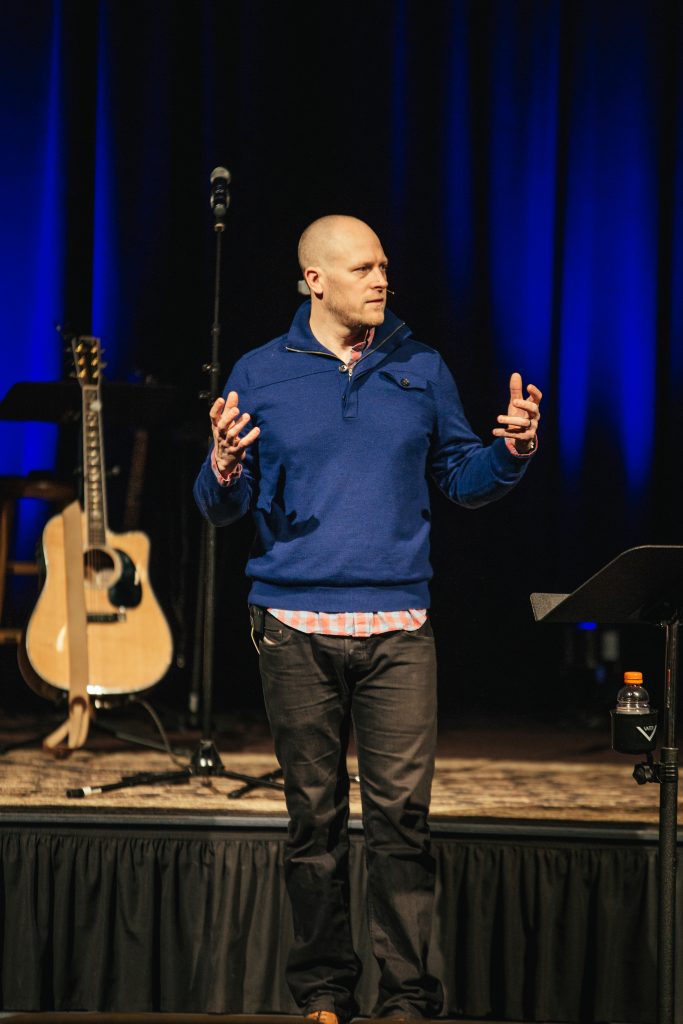
If we look at Job, if we look at the psalms of lament, those psalms are filled with desire. Those songs are filled with people’s hopes and dreams coming to the surface, saying, “God, You’ve yet to deliver on this.” And some of those are directly connected to God’s promises, right? God promises to heal and God promises to never abandon us. God promises to protect us.
I think the lament plays an important role in continuing to hold our desires before God, to say, “God, You have promised certain things and You’ve yet to deliver on them. And I’m not walking away from You and I’m not walking away from the promises, I still trust them deeply. But I’m going to continually grieve and be in angst over the fact that these are unfulfilled promises.” I think that’s what’s so powerful about the story of Job. If you read through Job, Job holds nothing back from God. And in fact, he tells God very clearly how he feels.
There’s one passage, I believe it’s in Job 30:20, where Job says essentially says, “God, I’m standing here, and all You do is merely look at me.” And I think so many of us can relate to that. That’s Job bringing all of who he is. “God. I have been crying out to You for thirty chapters now, and you’ve yet to respond. You simply look at me.” But what we see is that Job is good. Grieving has a process to it in which he comes out at the end and says, “I’ve heard of God, but now I see God.”
I think bad grief is when we try to short circuit that process where something bad happens, like at the beginning of Job. We try to get people to jump all the way to chapter forty-two of Job, where he says, “Well, now I see God.” But we forget that Job needed all forty-two chapters to get to that point. We have to allow people the process of their Job experience so that they can hear those same words spoken to them by God.
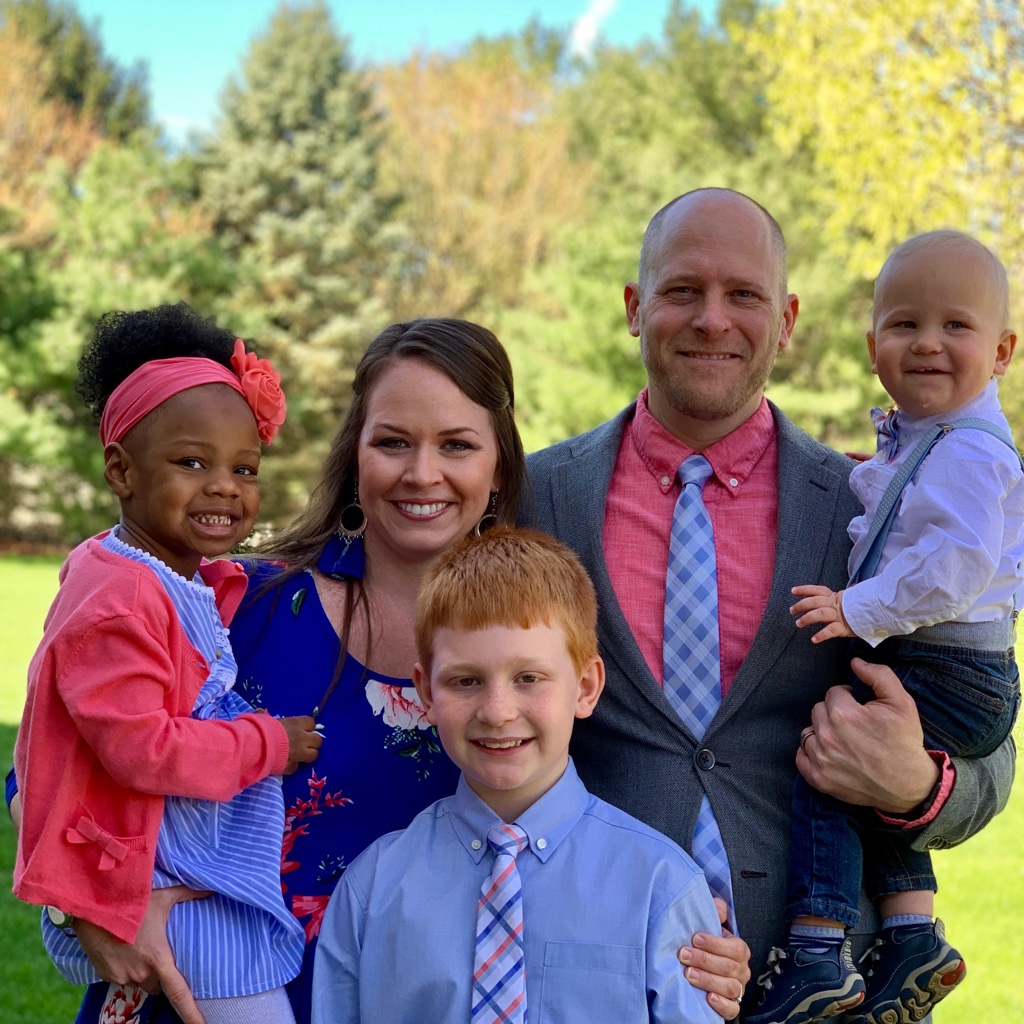
I think the other thing that we have to remember is we often want quick fixes, right? We want God to save us from the suffering experience. We want God to save us from cancer. We want God to save us from the loss of a loved one. And oftentimes, when we say we want God to save us, what we really mean is we want God to keep us from ever having to go down that road. We don’t want to be the person who experiences that.
But when we read through the Bible, what we see, more often than not, is that the way God chooses to save His people is not to save them from the negative experience, but rather to save them through it. So the Israelites have to go through the Red Sea. Shadrach, Meschach, and Abednego have to go through the fiery furnace. And Jesus has to go through death in order to receive resurrection. That’s the same for us. We have to go through death to get to resurrection. We have to sometimes go through pain to receive intimacy with God.
“We read through the Bible, what we see, more often than not, is that the way God chooses to save His people is not to save them from the negative experience, but rather to save them through it.” Nate Pyle
Grief enters into that. But what’s great is that God doesn’t abandon us to that. God is with us. That can, again, be one of those ethereal sayings that we toss around. But this is where a church community really comes in, right? God is with us in the meals that show up, through the cards, through the prayers.
In fact, I just had a conversation with someone who is going through a very difficult ordeal. And he said to me, “Nate, I can actually feel when people are praying for me.” And that’s when the church really does become the presence of God on earth. We have to remember that sometimes God shows up through the people who show up next to us as we’re walking through something difficult.
“We have to remember that sometimes God shows up through the people who show up next to us as we’re walking through something difficult.“ – Nate Pyle
We’re Made Whole Through God
Narrator: God is always with us, many times in ways we don’t expect. Nate reads a passage from Jesus Calling that helps us remember God never leaves our sides, even during our darkest moments.
Nate: Here’s a passage from Jesus Calling, September 10th.
I am always available to you. Once you have trusted Me as your Savior, I never distance Myself from you. Sometimes you may feel distant from Me. Recognize that as feeling; do not confuse it with reality. The Bible is full of My promises to be with you always. As I assured Jacob, when he was journeying away from home into unknown places, I am with you and will watch over you wherever you go. After My resurrection, I made this promise to My followers: Surely I am with you always, to the very end of the age. Let these assurances of My continual Presence fill you with Joy and Peace. No matter what you may lose in this life, you can never lose your relationship with Me.

For me, what that passage points to is the hope that we sing about and celebrate every Christmas, Emmanuel, God with us. I think that’s the greatest hope that we can have. We may never get an explanation for what we’re going through, through the pain that we experience, through the circumstances that we have to endure. But what we get is intimacy. We get Jesus with us, mourning with us, rejoicing with us, walking with us, surrounding us with His grace that is embodied in His people, and even with His spirit. So for me, that idea of God with us—I just love how Sarah hits that phrase over and over again in that passage, “With you, with you, with you.”
Suffering is the common denominator for all humans. It’s the thing we have in common. The suffering that we experience is the suffering of a broken world, in which now there’s meaningless suffering—suffering, pain, and injustice. That’s doesn’t seem to have any redemptive qualities whatsoever. And that kind of suffering, I believe, breaks God’s heart.
“Suffering is the common denominator for all humans. It’s the thing we have in common.” – Nate Pyle

I think it’s too cold to say, “Well, it’ll all make sense down the road.” I don’t know that it will. You know what? The Bible never gives us an explanation for why suffering exists or why God continues to allow suffering. What the Bible promises to give us is that, one day, God will restore it and God will wipe every tear from every eye.
What I believe is that we can trust that God, as a good father, sees our suffering, is broken over our suffering just as we are, and will someday wipe the tears from our eyes. And we will be made whole, as we are in an intimate relationship with Him.
Narrator: You can find Nate’s latest book, More Than You Can Handle, at your favorite book retailer today.
If you’d like to hear more stories about where God shows up in ways we don’t expect, check out our interview with Bishop TD Jakes.
Narrator: Next time on the Jesus Calling Podcast, we speak with Trevor Brazile, a world champion rodeo athlete. Trevor attributes his success not only to his hard work and dedication, but God’s hand in elevating his talents to a level where he can connect with a large audience about his faith.
Trevor Brazile: I want to be careful that people know where my blessings come from, because if you line up all the successful rodeo athletes, I’m gonna live like the shepherd boy, David. And I think to this day, that’s why I was chosen, because everybody could see that it wasn’t all athleticism, it wasn’t self-done. God had His hand on me my whole career.
Narrator: Do you love hearing these stories of faith weekly from people like you whose lives have been changed by a closer walk with God? Then be sure to subscribe to the Jesus Calling: Stories of Faith Podcast on iTunes, Stitcher, or wherever you listen to your podcasts. If you like what you’re hearing, leave us a review so that we can reach others with these inspirational stories. And, you can also see these interviews on video as part of our original web series with a new interview premiering every other Sunday on Facebook Live. Find previously broadcasted interviews on our Youtube channel, on IGTV, or on www.jesuscalling.com/media/video.


One thought on “Understanding a God Who Is For Us: John Maxwell & Nate Pyle”
Comments are closed.